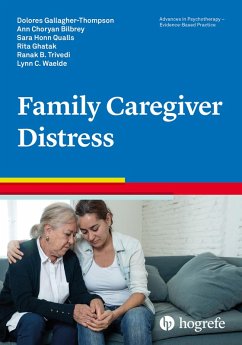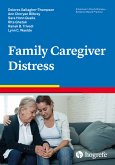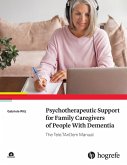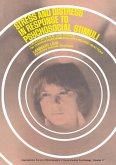Get the science on helping reduce stress in family caregivers of people with dementia: Details the best tools for assessment and explores evidence-based approaches Reflects on diversity, equity, and inclusion Includes downloadable handouts Guidance for supporting family caregivers on maintaining positive mental health This is the first book that takes a "deep dive" to answer the questions that mental health providers encounter when working with family caregivers. Just what are the unique issues family caregivers face? How does this impact their mental health? What can providers do to help? Based on research and clinical experiences of the authors, this volume in our Advances in Psychotherapy series focuses on examining the specific issues that caregivers of people with Alzheimer's disease or other forms of dementia face. Practitioners learn about the best tools for assessment and which evidence-based interventions help reduce caregiver distress - including cognitive behavioral therapy, acceptance and commitment therapy, and mindfulness and multicomponent intervention programs. Resources in the appendix include a caretaker intake interview, and the book is interspersed with clinical vignettes that highlight issues of diversity, equity, and inclusion - making this is an essential text for mental health providers from a variety of disciplines including psychology, psychiatry, nursing, social work, marriage and family counseling, as well as trainees in these disciplines.
Dieser Download kann aus rechtlichen Gründen nur mit Rechnungsadresse in A, B, BG, CY, CZ, D, DK, EW, E, FIN, F, GR, H, IRL, I, LT, L, LR, M, NL, PL, P, R, S, SLO, SK ausgeliefert werden.









